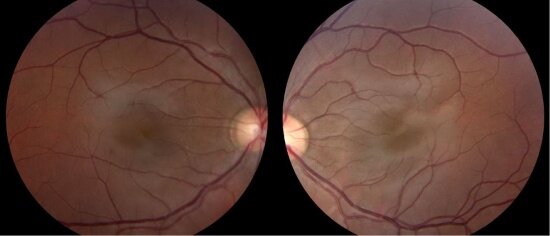Ocular albinism is a rare genetic disorder that affects the eyes and can lead to vision problems. It is caused by a mutation in the genes that are responsible for the production of melanin, the pigment that gives color to the skin, hair, and eyes. While ocular albinism can affect anyone, it is more common in males and can be passed down from one generation to the next.
Symptoms of ocular albinism typically include vision problems such as reduced visual acuity, nystagmus (involuntary eye movements), strabismus (misalignment of the eyes), and sensitivity to light (photophobia). These symptoms are caused by the reduced or absent melanin in the eye, which can affect the development and function of the retina and other structures of the eye.
In addition to the eye-related symptoms, some individuals with ocular albinism may also have skin and hair-related symptoms, such as pale skin, blond or white hair, and freckles.
Diagnosis of ocular albinism typically involves a thorough eye examination, including a visual acuity test, a retinal exam, and an assessment of eye movements and alignment. In some cases, genetic testing may also be performed to confirm the diagnosis and identify the specific genetic mutation responsible for the condition.
While there is currently no cure for ocular albinism, there are a number of treatments and interventions that can help manage the symptoms and improve the quality of life for individuals with the condition. Some of these treatments may include:
Corrective lenses: glasses or contact lenses can help improve visual acuity and reduce glare and sensitivity to light
Low vision aids: devices such as magnifiers, telescopes, and electronic reading aids can help individuals with ocular albinism better see and read
Vision therapy: exercises and activities designed to improve eye tracking, visual processing, and other aspects of visual function
Surgery: in some cases, surgery may be recommended to correct strabismus or other eye alignment problems
It is also important for individuals with ocular albinism to take steps to protect their eyes from the sun and other sources of UV radiation, as they may be more sensitive to these types of light. This may include wearing sunglasses, hats, and other protective clothing, as well as avoiding excessive exposure to bright light.
In conclusion, ocular albinism is a rare genetic disorder that affects the eyes and can cause vision problems and other symptoms. While there is currently no cure for the condition, there are a number of treatments and interventions that can help manage the symptoms and improve the quality of life for individuals with the condition. If you or a loved one has been diagnosed with ocular albinism, be sure to speak with your eye care provider about the available treatment options and how best to manage the symptoms of the condition.
At The Eye Center- Dr. Mahnaz Naveed Shah & Associates our team of eight ophthalmology subspecialists/ eye specialists, eye surgeons who are considered amongst the very best eye specialists in Karachi and in Pakistan, have the diagnostic and treatment capabilities to treat from the simplest to the most complex patients. We work hard to provide our patients with the best possible medical and surgical eye care, in a state of the art purpose built eye care facility. We offer the entire array of medical, laser and surgical treatments to help provide patients the best possible care in the most efficient, safe and ethical manner.
If you need an appointment, please contact us at 03041119544 during our working hours or leave us a WhatsApp message at +923028291799 and someone will connect with you. Walk-in appointments are also available for emergencies. We can also be reached through our web portal on www.surgicaleyecenter.org

